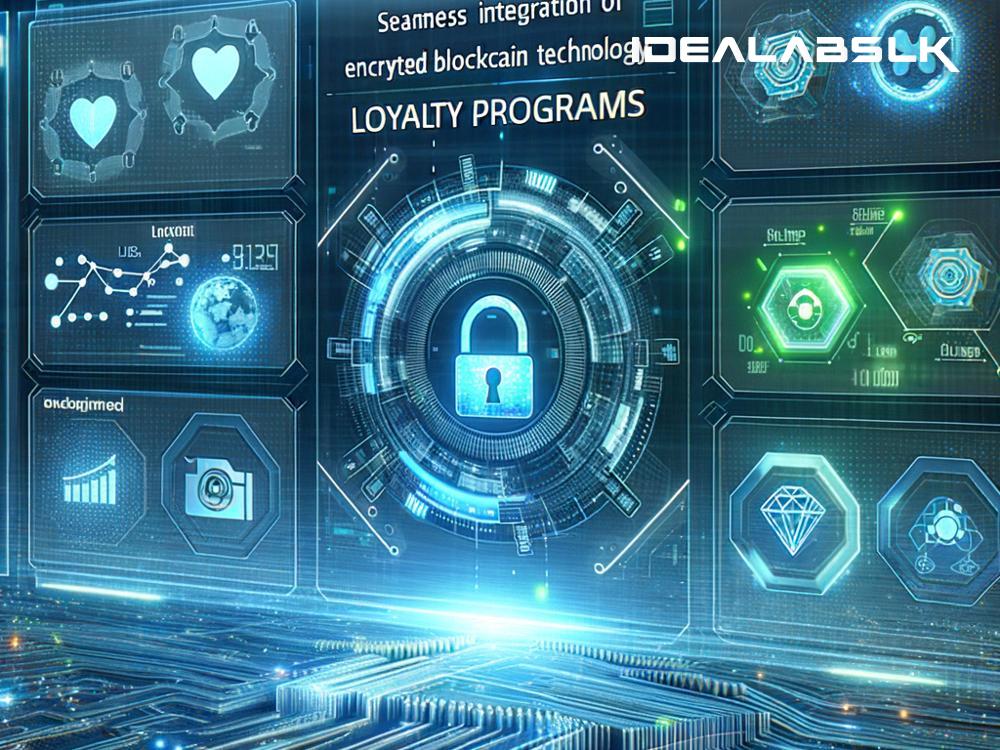The Future of Digital Loyalty Programs with Blockchain
In today’s fast-paced digital age, loyalty programs are reinventing themselves. Gone are the days when you'd just collect stamps or punch cards from your favorite coffee shop. The future is digital, and it promises more than just points for your purchases. Enter the era of blockchain - a technology that's not only the backbone of cryptocurrencies like Bitcoin but is also paving the way for a revolutionary change in how we think about loyalty programs. So, let's dive into how the future of digital loyalty programs with blockchain is shaping up.
What is Blockchain, Anyway?
Imagine a diary that is duplicated thousands of times across a network of computers. This diary updates itself every time a new entry is made. Each entry is a 'block', and the entire diary is the 'chain'. The cool thing? Everyone can see the entries, but no one can tamper with them. That's blockchain in a nutshell - a secure, transparent, and immutable ledger.
The Current State of Loyalty Programs
Traditional loyalty programs often involve customers juggling multiple cards or keeping track of points through different apps, which can be both cumbersome and limiting. Points might expire before you even realize, or you might forget about them altogether. Furthermore, these programs are usually siloed, meaning the points you earn with one brand stay with that brand. This can be limiting for both customers and businesses alike.
How Blockchain Changes the Game
Blockchain technology promises to overhaul these traditional systems in several key ways:
1. Security and Transparency:
With blockchain, every transaction is recorded on a secure, tamper-proof ledger. For loyalty programs, this means that your earned points are safe and cannot be fraudulently altered. You can see your transactions in real-time, bringing a new level of transparency to the process.
2. Unified Systems:
Imagine earning points from a coffee shop, a bookstore, and an airline all in one place. That's the potential of blockchain-enabled loyalty programs. Such a system could allow points to be interchangeable between different brands and services, providing a seamless and more rewarding experience for customers.
3. Reduced Costs and Increased Efficiency:
Traditional loyalty programs are expensive to run, involving complex systems of tracking and managing points. Blockchain simplifies this process by providing a single ledger for all transactions, drastically reducing the costs involved and increasing the efficiency of these programs.
4. Enhanced Customer Experience:
With blockchain, customers could have more control over their loyalty points, including how and when they spend them. No more waiting to accumulate enough points for a specific reward; you could use your points across a network of partners, enhancing both the flexibility and value of loyalty programs.
Real-World Examples and Predictions
While the full-scale application of blockchain in loyalty programs is still in its infancy, some forward-thinking companies are already experimenting with this technology. For example, Singapore Airlines launched a blockchain-based loyalty program that allows customers to spend their air miles at retail partners. This kind of innovation is just the beginning.
Looking into the future, we might see more companies, both big and small, collaborating through blockchain networks. Loyalty points could become a form of digital currency, exchangeable not just for products and services but perhaps even converted into cryptocurrencies or used for charity donations.
Challenges and Considerations
Adopting blockchain for loyalty programs is not without its challenges. There are technology costs involved, considerations around privacy and data protection, and the need for a regulatory framework that can keep up with the fast pace of blockchain development. Additionally, for a truly unified system to work, there needs to be widespread adoption and collaboration between businesses, which requires a significant shift in mindset.
Conclusion
The move towards blockchain-based digital loyalty programs represents an exciting leap forward, promising more secure, transparent, and flexible systems that benefit both businesses and consumers. While there are hurdles to overcome, the potential for creating a truly interconnected ecosystem of rewards is immense. As we look to the future, it's clear that the intersection of loyalty programs and blockchain technology holds boundless possibilities, transforming the way we think about loyalty and rewards in the digital age. Stay tuned; the best is yet to come.

